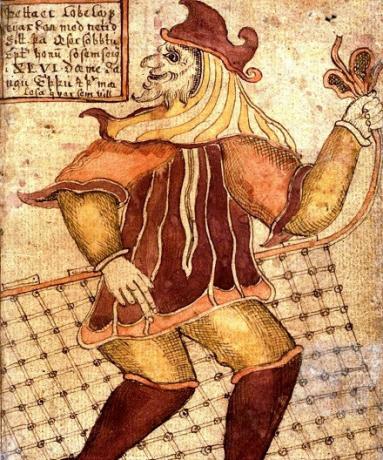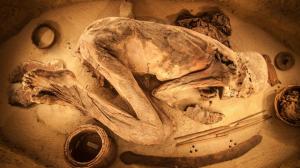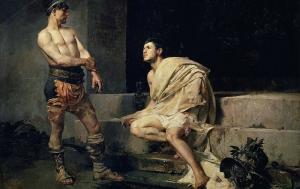The 6 most famous Viking gods
It has been about three years since the first pagan temple in Iceland was inaugurated by the Neopagan association Asatruarfelagid, where venerations and worship of the Viking gods are carried out. With no apparent scientific explanation, the rise of this type of religion or sect is spreading throughout northern Europe, especially in Scandinavian regions.
Returning to the data of the mentioned associations, only the Icelandic one has tripled in the number of affiliates in 10 years of history. Wanting to get out of the controversy generated by this phenomenon, the highest authority of the Asatru association, Hilmar Örn, vindicates the metaphorical and poetic role of their beliefs. Shunning the bad image generated, the priest claims not to believe in monstrous mutant-headed beings with green skin.
However, yesteryear Viking gods were entities that this Norse people fervently believed in. Even today, the mythology associated with them continues to fascinate many people.
- You may be interested: "25 Egyptian gods (biography, personality and legacy)"
The main Viking gods
The Norse and Germanic mythology is full of super powerful beings that have to do, mainly, with the earth and nature. Below you will find a brief explanation about the most important Viking gods.
1. Thor
Today, it appears in movies, comics, comics and even in cereals. In the present, the god Thor is surely the most popular Viking mythological being on a universal level. Son of Odin, the god of the gods, Thor represents strength, power and war. A blond or red beard and fierce gaze were part of the physical characteristics with which he was often described, although almost as important as he was his weapon.
Thor is always depicted wielding a hammer known as mjolnir, forged by dwarves. His means of transportation was an imposing carriage that was dragged by goats whose passage was marked by sounds that emulated lightning and thunder.
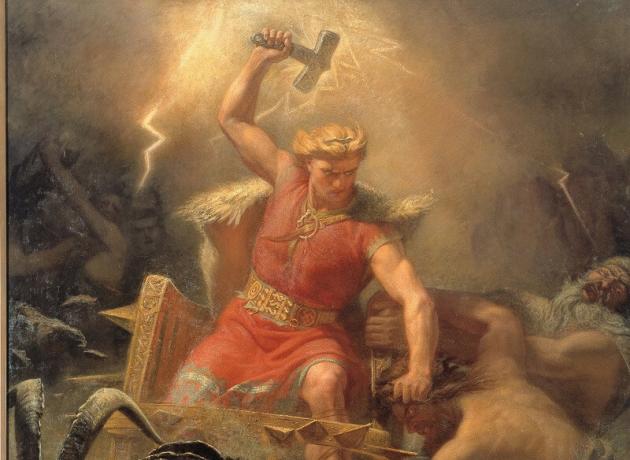
2. Odin
As we mentioned in the first place, Odin was the god of the gods, to whom one had to pay homage. Thor's father, he possessed some of the characteristics that he passed on to his son: strength, dexterity, warfare, intelligence, and cunning. It was his reason for being, knowledge and wisdom. She mutated from being to acquire more intellect, and he was always accompanied by crows.
To carry out an increase in intelligence, Odin was associated with human and animal sacrifices, which earned him the loss of an eye. It is said that the word in English "Wednesday", day of the supreme god, is due to the name in English: "Woden".
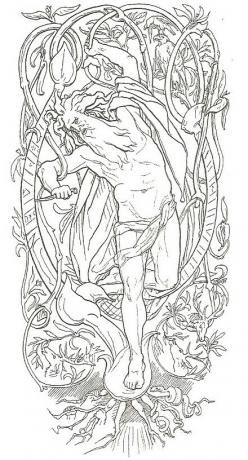
3. Frigg
She is Odin's wife and Thor's stepmother. This Viking deity represented love, fertility, marriage, motherhood and home art. As a special power she had the quality of prophesying, knowing and knowing the destiny of all humans, as well as the only one, after Odin, to be able to occupy the throne of the gods and observe the universe.
It is said that the origin of the word "Friday" in English, which means Friday, comes from the Germanic origin "Freitag", whose epistemology has a lot to do with this Viking goddess.
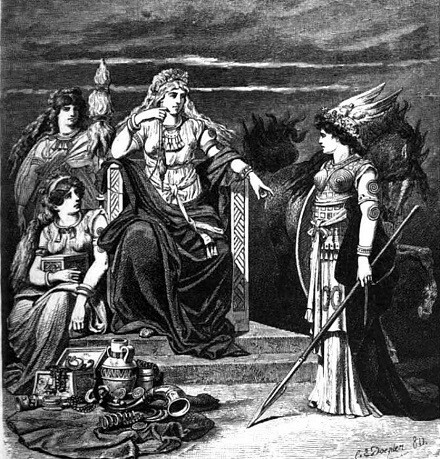
4. Tyr
Within German-Norse mythology, the god Tyr is considered the absolute warrior of all Viking gods. Although most of their encounters, stories and narratives have to do with war and force scenarios, they do not she was an exclusively brute character, but she is also attributed iconographies associated with wisdom and laws.
Similarly, he also made a self-sacrifice and she had her left arm amputated for the gods to save the world from the wolf Fenrir. It should be noted that only Thor surpassed him in terms of physical strength.
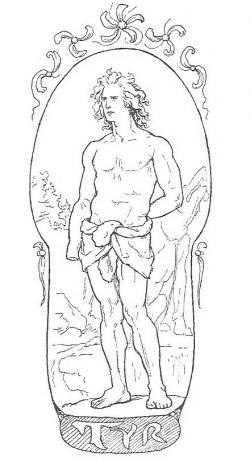
- You may be interested: "The history of the symbol of Psychology (Ψ)"
5. Freyja
She was the goddess of love and fertility, beauty and romance. She was madly in love with her husband Odr. It is said that when he walked away from her, Freyja would burst into tears and, because of how beautiful she was from her, she shed tears of gold between her eyelashes. For these reasons, among others, she was one of the most respected deities, although from the modern perspective she seems rather a grouping of characteristics traditionally associated with the feminine.
Her dress was worthy of what she stood for. Beautiful shimmering and precious necklaces, a hypnotic plumage that allowed him to fly between the underworlds and a carriage carried by wonderful felines were part of the objects with which she represented it. Although she was the least bellicose deity, she accompanied soldiers and gods to war to instill security and motivation, as she was considered a sage.
@image (id)
6. Loki
According to Norse mythology, Loki is the son of the giants Laufey and Farbauti, and is characterized by his ability to deceive and wreak havoc. In fact, he is technically not a god, but rather a mysterious entity who mixes with gods or even impersonates one.
There is very little information about Loki and it is not well known to what extent he was part of the original pantheon of Norse mythology; However, his influence has been reflected in Western culture through all kinds of stories and even operas, films, novels, etc.
